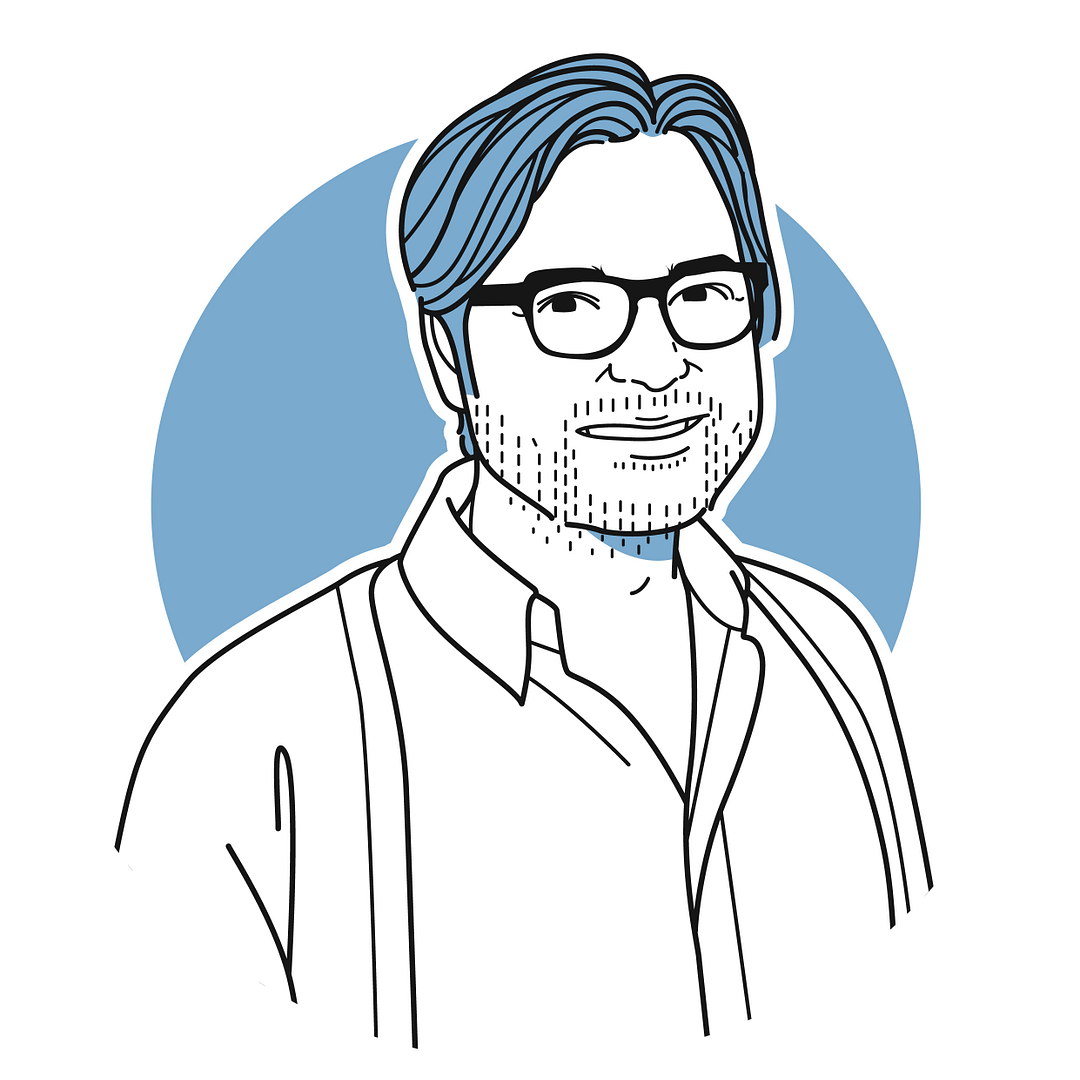Welcome to The Sprudge Twenty Interviews presented by Pacific Barista Series. For a complete list of 2024 Sprudge Twenty honorees, please visit sprudge.com/twenty.
For this year’s Sprudge Twenty, I am honored to nominate my brother, John Di Ruocco, Mr. Espresso Co-owner and VP of Coffee.
We, as a company, often tell our founding story—our father, Carlo Di Ruocco, pursuing his American dream, carrying the craft of wood roasting coffee from his native Salerno, Italy, to Northern California, where he established a place for exceptional espresso at dining tables in the region’s earliest, iconic farm-to-table establishments, led by luminary chefs, trailblazers of the ‘70s and ‘80s. It’s a rich story steeped in history, and honored extensively.
From my perspective, the coffee story continues through my brother. John assumed his role as torchbearer at an early age with a grace and vision that has positioned Mr. Espresso as an enduring industry anomaly in the very best way—a coffee roaster that has defied coffee “waves.” John was only 11 years old when our father started importing espresso machines from Italy, but it was clear that coffee was in his DNA. John faithfully rode with our father on machine repair calls and tinkered with any he could at home. After John graduated from UC Berkeley with a degree in Architecture, it was not long before he returned to his passion, the coffee roastery.
When I joined the family business in 2001, John had already moved from roastmaster to Director of Coffee, where in retrospect he was bridging the gap between the second wave of commodity coffee and the third wave of contemporary, informed values around coffee, from farm to cup. John was uniquely finding the place that honored our father’s Italian tradition of handcrafted, wood-roasted coffee, while embracing newer values that honored those at the heart of what we do, our coffee producers at origin.
John’s developing philosophy informed the coffee program he built based on those values. Recognizing the duality of sustainability extends to natural resources and human resources, John was instrumental in advancing the Certified Organic coffee program as an early adopter in 1992, and the Fair Trade USA designation in 1999, one of the first U.S. coffee roasters to do so.
Most recently, John, our sister Laura, and I opened Mr. Espresso’s first retail outlet, The Caffè by Mr. Espresso. With The Caffè, we pay homage to our family’s coffee legacy in the Italian espresso, wood roasting tradition. The space has been recognized for its simplistic, contemporary beauty, with prominent wood features, a 17-foot-wide oak slab bar and hanging art installation, subtly remind us of the wood roast. The award-winning ceramic cupware was designed for an optimum temperature while consuming. Beyond the contemporary aesthetic, are subtle nods to the Italian coffee bar experience, including no queue for ordering. Just find a spot at the bar. John tapped into his inner architect to advise on many of the key elements. And, he’s behind the coffee, of course.
I see The Caffè as a metaphor for what John has done so well for Mr. Espresso, offering a bridge between the traditional and the modern. Defying convention. Opening the first Caffè in the company’s 45th year. Perpetuating a 100+ year-old craft to produce award-winning coffees. Things that take courage.
After working side-by-side for more than two decades, John continues to inspire me with his undying passion for his craft, his boundless dedication to the global coffee community, and his fearlessness to do it all his way. I’m sharing his story with the hope that others in our industry can be inspired to do coffee their way.
Nominated by Luigi Di Rocco
How many years total have you worked in the coffee industry?
Around 45–50 years
What is your current role in coffee?
VP of Coffee at Mr. Espresso
What was your first coffee job?
Holding the flashlight for my dad. In the early days of Mr. Espresso in the 1970’s, the coffee business was a side hustle for my dad. He had a full-time job during the week and we would go out on weekends to repair and install espresso machines. I was about 10 years old and one of my main duties was holding the flashlight, in addition to handing him tools and helping carry equipment.
Did you experience a life-changing moment of coffee revelation early in your career?
Coffee has changed and defined my life but there has not been one clear moment of revelation. It has been more of a slow evolution or development.
What facet of the coffee industry has changed the most during your career?
When we first started Mr. Espresso, people did not know what espresso was: We spent the first 10 years explaining what an espresso machine is. Then we spent the next 10 years explaining the difference between an espresso, cappuccino, and latte. I never imagined that espresso would become so mainstream; that seemed like a really far-fetched idea at the time.
Is there a person or persons who served as your mentor early in your coffee career? How did they impact you?
First and foremost, it would be my father. He set the bar for quality and authenticity in a time that espresso was widely misunderstood. In those early years, espresso was simply defined as a dark roasted coffee that was prepared from an espresso machine. There was little understanding of what it really was, so the coffee being prepared bore little resemblance to a properly prepared espresso. It would have been easier to just go along with what other people were doing, but my father believed that there was a demand for an authentic Italian espresso from quality beans. In the end, that was the key to his success. In addition to that, my father set the bar for hard work, determination and his ability to connect with people.
What’s something about the coffee industry you’d most like to see change?
I’d like to see more traditional specialty coffees—the coffees most specialty consumers consume—get a little more recognition. Right now, everyone is promoting their super specialty Gesha anaerobic or whatnot. That is good to a point, but we should be pushing the envelope for quality and what is possible, returning more money to the producers. The reality is that the super special coffees only appeal to a small set of consumers. The pressure to provide these coffees creates a situation where there are more super specialty coffees than there are buyers. That often leaves someone along the line with a coffee that cost a lot to produce that they cannot sell at a price that meets the cost.
Do you make coffee at home? If so, tell us how you brew!
During the week I make a cappuccino first thing in the morning. I can’t start my day without it. On days that I stay home, it’ll range from espresso to flash brew.
What is your idea of coffee happiness?
I’d like to see an industry that is detached from the ‘C’ market and the price of coffee is based on the cost of production. Some small roasters are able to do it but it is difficult for a roaster with any scale to do it. We have long relationships with producers and buy good coffees at good premiums, but most of those premiums are usually tied to the ‘C’ market in one way or another.
Today, trading is dominated by speculators who have nothing to do with producing or roasting coffee; for every bag of coffee products, 20-30 bags are traded on the exchanges. This creates a situation where, for the most part, the ‘C’ price has little to do with the cost of production. Speculators are the one who benefit most from this system and small producers often sell coffee below the cost of production.
What’s one piece of advice you would give someone getting their start in the coffee industry today?
Find your niche. Today, coffee is so big that you can approach coffee from many different directions. You don’t need to do what everyone else is doing. And stay off the internet, or at least don’t spend as much time on it. Use your own instincts and curiosity to create your own coffee experience and perspective.
Thank you.
The Sprudge Twenty Interview series is presented by Pacific Barista Series. For a complete list of 2024 Sprudge Twenty honorees and interviews, please visit sprudge.com/twenty.
<?php echo adrotate_group(54); ??><?php echo adrotate_ad(589); ??><?php echo adrotate_group(56); ??><?php echo adrotate_ad(589); ??><?php echo adrotate_group(69); ??><?php echo adrotate_ad(589); ??><?php echo adrotate_group(38); ??><?php echo adrotate_ad(589); ??><?php echo adrotate_group(51); ??><?php echo adrotate_ad(589); ??>
Sprudge Staff
August 7, 2024


